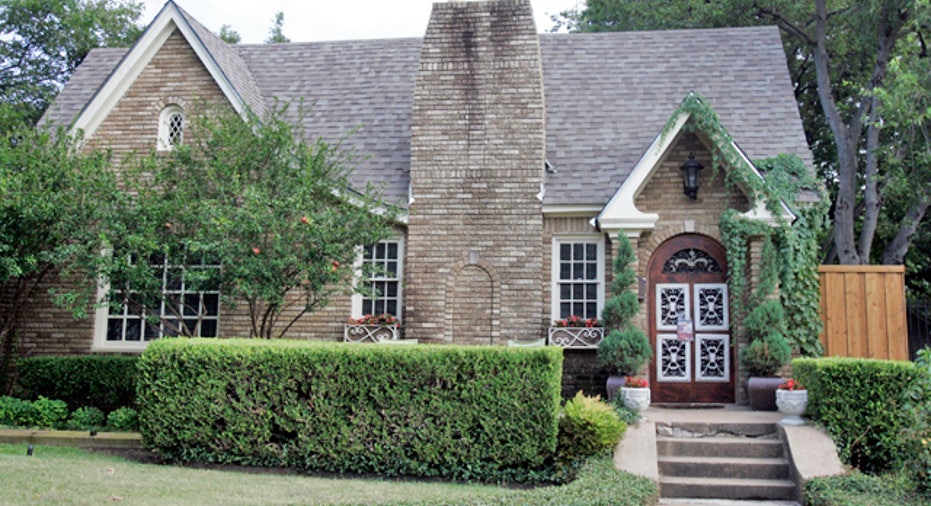Critics Say Northeast Home Insurance Price Hikes Need Greater Scrutiny

A push for greater transparency is under way as some homeowners and regulators worry that recent property damage from Hurricane Irene will trigger a round of rate hikes by home insurance companies.
Citizens for Homeowners Insurance Reform in Massachusetts (CHIR) is campaigning for state legislation that would require insurers to justify price increases. Insurance regulators in Massachusetts sent out a recent bulletin warning insurers against raising home insurance rates without justification.
"We are going to carefully scrutinize any proposed rate increase that companies send over," said Joseph Murphy, commissioner of the Massachusetts Division of Insurance.
Paula Aschettino, chair of CHIR--which represents more than 8,000 homeowners in coastal communities across Massachusetts--wants to see the computer models of future storm activity that companies use to help set insurance rates.
Aschettino contends property insurers may be using computer models more accurate for a hurricane-prone state like Florida than a region like New England, which has fewer harsh storms. Basing premiums on an inaccurate storm model could result in unjustified rates.
Paying a high insurance premium
Despite the lower level of storm risk in the Northeast, Aschettino notes she and thousands of other residents in Massachusetts coastal communities pay very high home insurance rates.
She currently has a wind deductible of $33,000 and still pays thousands of dollars each year in premiums.
Because of her large deductible, she says, "I am basically self-insured and I pay $3,200 a year."
Aschettino says insurers may be overly cautious when it comes to managing risk in coastal areas. Homeowners in some inland areas of central Massachusetts pay much lower annual home insurance premiums--less than $1,000--yet have higher numbers of wind damage claims than coastal areas, she points out.
"We have had the lowest wind losses in the state over the past 12 years," Aschettino says of Massachusetts coastal towns, "but we have had the largest increases in rates."
Property insurers are not required to reveal to Massachusetts insurance regulators or the public the calculations and computer models behind their insurance quotes. That makes an informed debate on the issue difficult, Aschettino says.
Insurance suspicions
Such suspicions are misplaced, argues Jim Harrington, executive director of the Massachusetts Insurance Federation, which represents property insurers.
"A number of things go into rate-making, including our losses," he says.
And while he acknowledges there may be some issues with computer modeling, that "is an issue for regulators, in this case the Massachusetts insurance commissioner, to decide."
After Katrina and other devastating hurricanes, homeowner insurance companies were forced to overhaul how they do business in coastal areas - not just in Florida or Louisiana, but in other states across the country, including Massachusetts.
Home insurance companies cover their own losses by purchasing reinsurance. In recent years, reinsurers also hit with big losses have told insurance companies to either pay more for reinsurance or reduce their exposure in coastal areas.
Many property insurers have opted to pull out of coastal areas, forcing state officials to step in with their own "last resort" home insurance plans to fill the void.
"It's an ongoing issue of concern since you had what happened in the marketplace five or six years ago," Harrington says.
Understanding insurance prices
Murphy believes property insurers will oppose divulging the details of how rates are determined. Insurers do not currently share that information even with state regulators, citing competitive concerns if other firms see how they set prices.
To get a better understanding of the influence of computer modeling on rates proposed by the various property insurers, state regulators will sometimes visit the firms that supply storm computer models to insurer, to understand how they do their jobs, Murphy notes.
Murphy says he would be interested in looking directly at the modeling data. He notes that Florida's hurricane commission has successfully gained access to such data, and believes that a similar organization made up of states in the Northeast could be formed.
While regulators need to remain skeptical of increases in insurance prices, the threat of hurricanes should not be minimized in Massachusetts, he adds. "The difference between Massachusetts and Florida is we don't get nearly the frequency of storms, but we do get the severity."
The original article can be found at Insure.com:Critics say Northeast home insurance price hikes need greater scrutiny



















